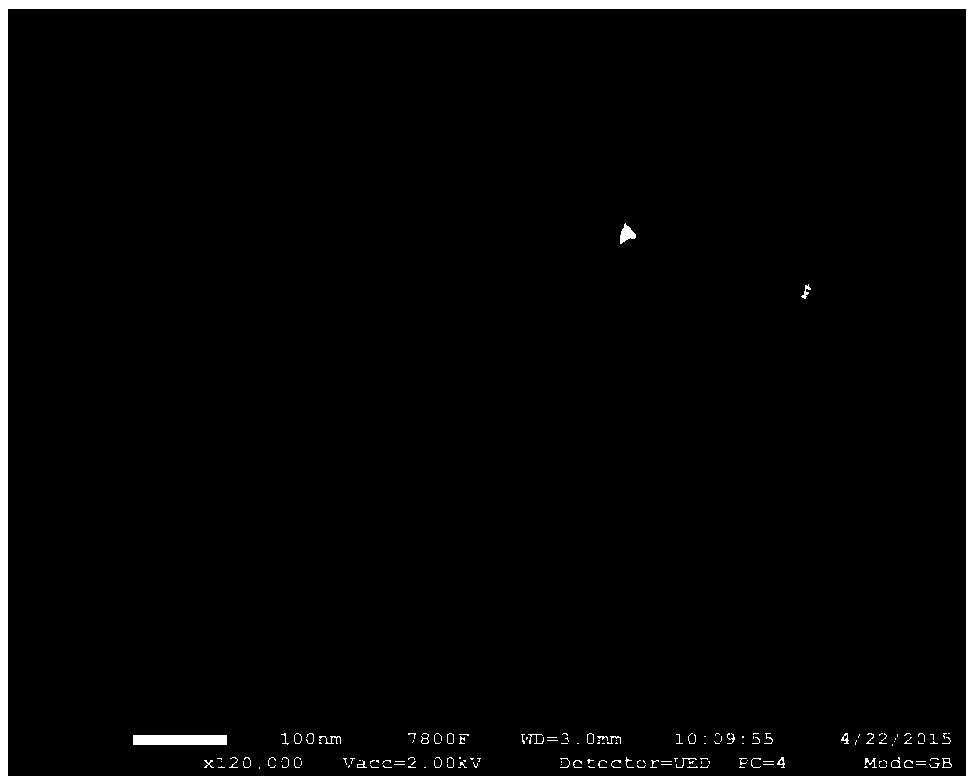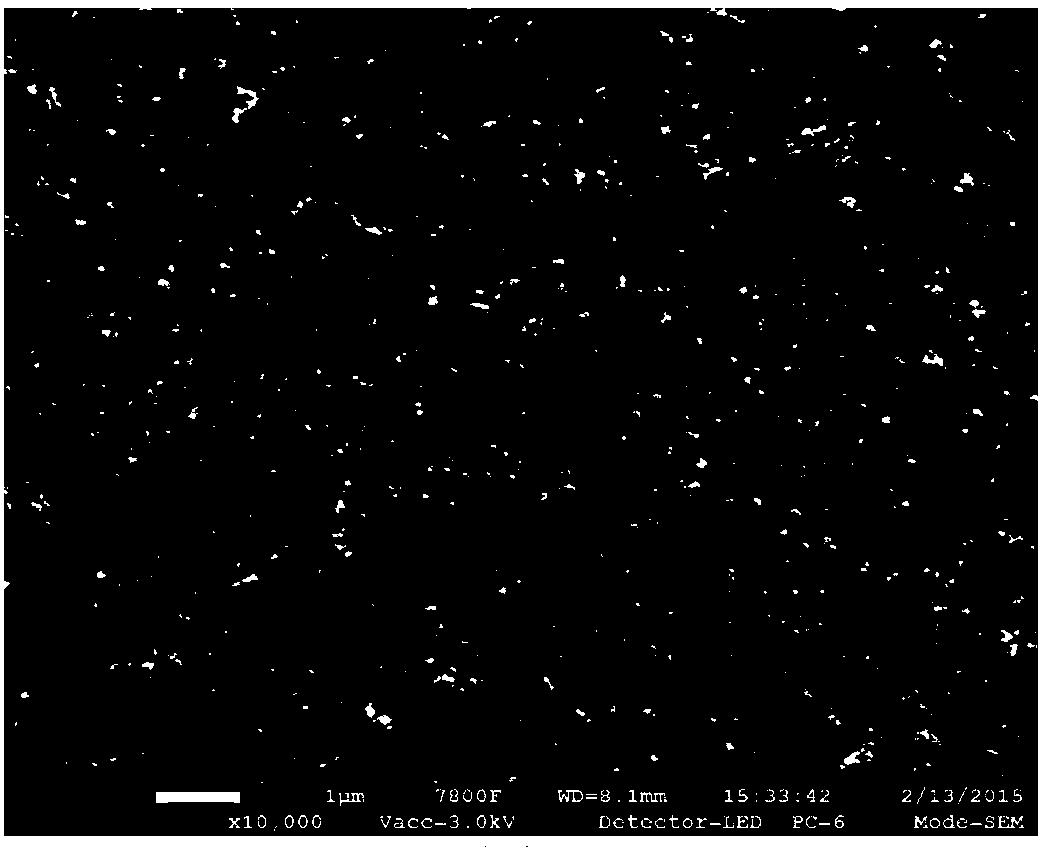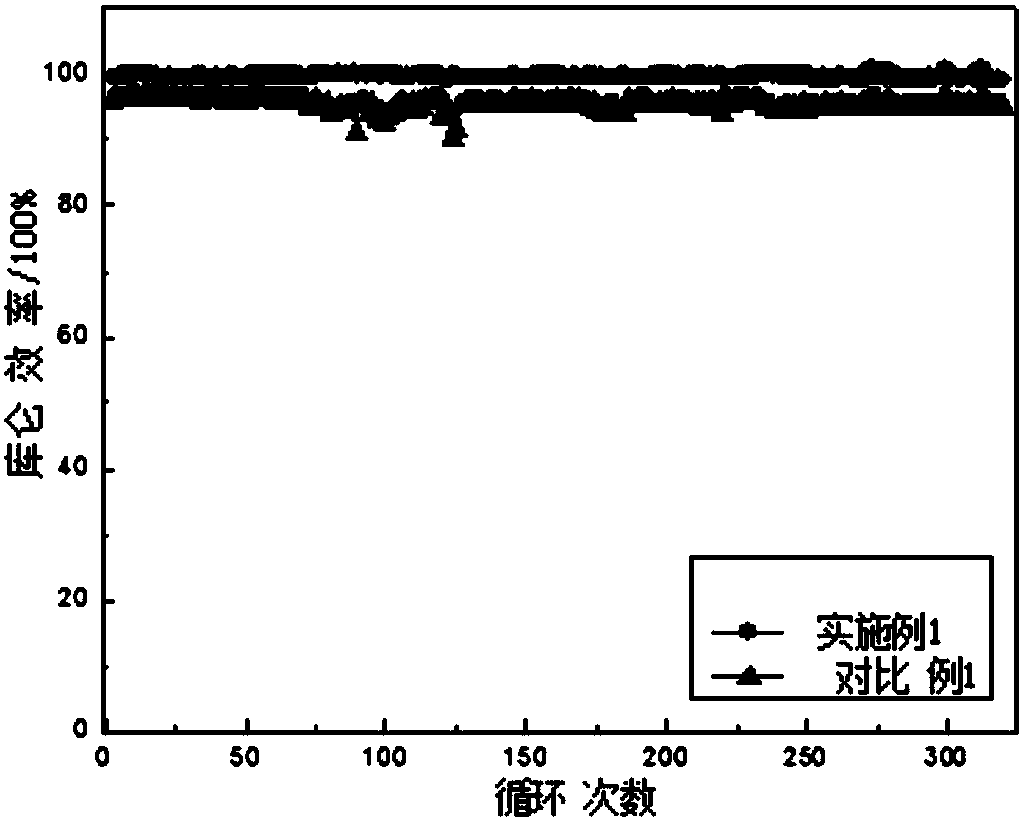Anode material for zinc-bromine flow battery and preparation and application thereof
A zinc-bromine flow battery and positive electrode technology, applied in battery electrodes, regenerative fuel cells, circuits, etc., can solve problems such as poor effect
- Summary
- Abstract
- Description
- Claims
- Application Information
AI Technical Summary
Problems solved by technology
Method used
Image
Examples
Embodiment 1
[0030] Place 2 g of titanium dimethyl dithiocarbamate under nitrogen, and heat up from room temperature to a sintering temperature of 500 degrees Celsius at a rate of 1 degrees Celsius / minute. After sintering at 500°C for 1 hour, the carbon-coated metal titanium sulfide was obtained. The material is granular and agglomerated see figure 1 , where the white particles are uncoated titanium sulfide. The prepared carbon-coated titanium disulfide material and the binder nafion were coated on a 36cm 2 On carbon felt (5mm thickness), the load is 2mg / cm 2 , as the positive electrode;
[0031] Negative pole adopts 36cm 2 Carbon felt (5mm thickness), with nafion membrane as the diaphragm in the middle. The positive and negative electrolytes are both 2mol / L zinc bromide solution 60ml. Through the circulation pipeline, it circulates between the liquid storage tank and the positive and negative electrodes of the battery. The battery uses 40mA / cm 2 , current density charge and discha...
Embodiment 2
[0036] Place 2 g of titanium diethyldithiocarbamate under nitrogen and raise the temperature from room temperature to a sintering temperature of 700 degrees Celsius at a heating rate of 10 degrees Celsius / minute. After sintering at 700°C for 2 hours, the carbon-coated metal titanium sulfide was obtained. The material is agglomerated in granular form, see Figure 4 .
Embodiment 3
[0038] 2 g of titanium diethyldithiocarbamate was placed under nitrogen and heated from room temperature to a sintering temperature of 1000 degrees Celsius at a heating rate of 5 degrees Celsius / minute. After sintering at 1000°C for 4 hours, it was taken out to obtain carbon-coated metal titanium sulfide. The material is granular and agglomerated see Figure 5 , it can be clearly seen from the figure that the bright white is titanium sulfide, and titanium sulfide is embedded in the carbon skeleton.
PUM
 Login to View More
Login to View More Abstract
Description
Claims
Application Information
 Login to View More
Login to View More - R&D
- Intellectual Property
- Life Sciences
- Materials
- Tech Scout
- Unparalleled Data Quality
- Higher Quality Content
- 60% Fewer Hallucinations
Browse by: Latest US Patents, China's latest patents, Technical Efficacy Thesaurus, Application Domain, Technology Topic, Popular Technical Reports.
© 2025 PatSnap. All rights reserved.Legal|Privacy policy|Modern Slavery Act Transparency Statement|Sitemap|About US| Contact US: help@patsnap.com



